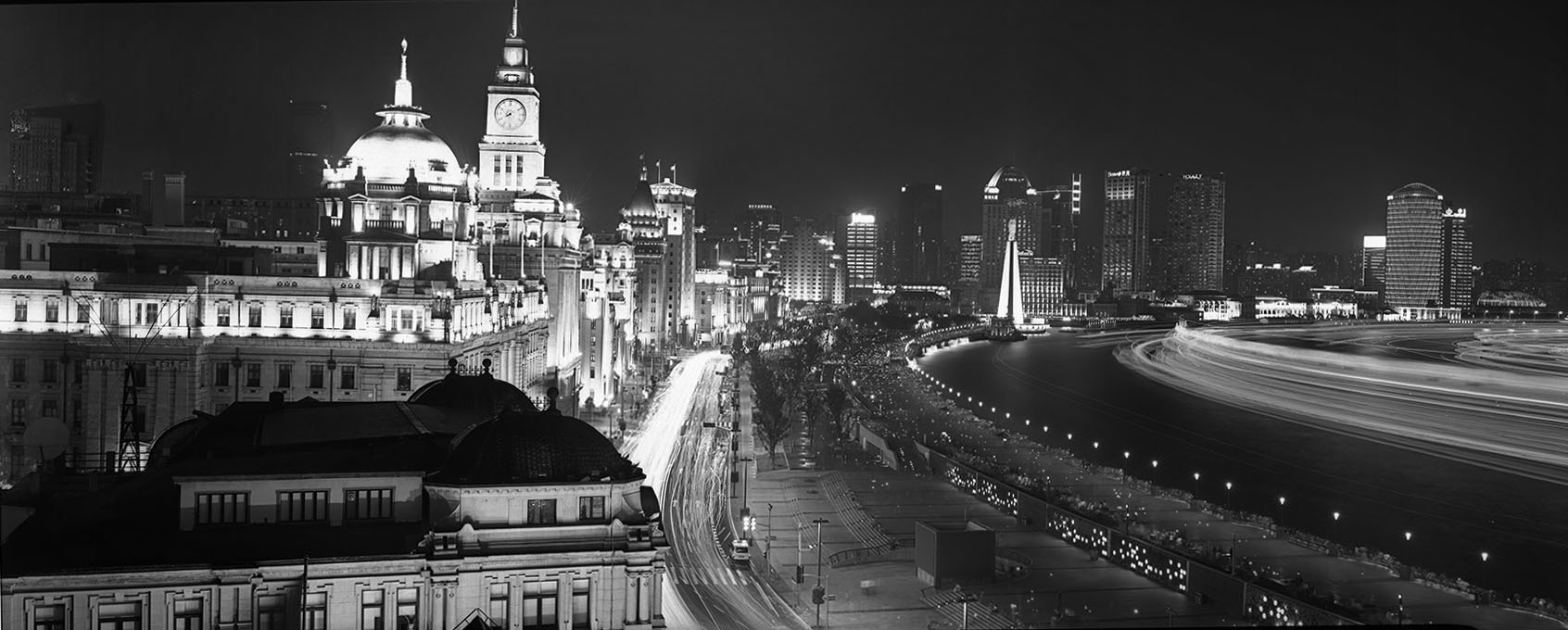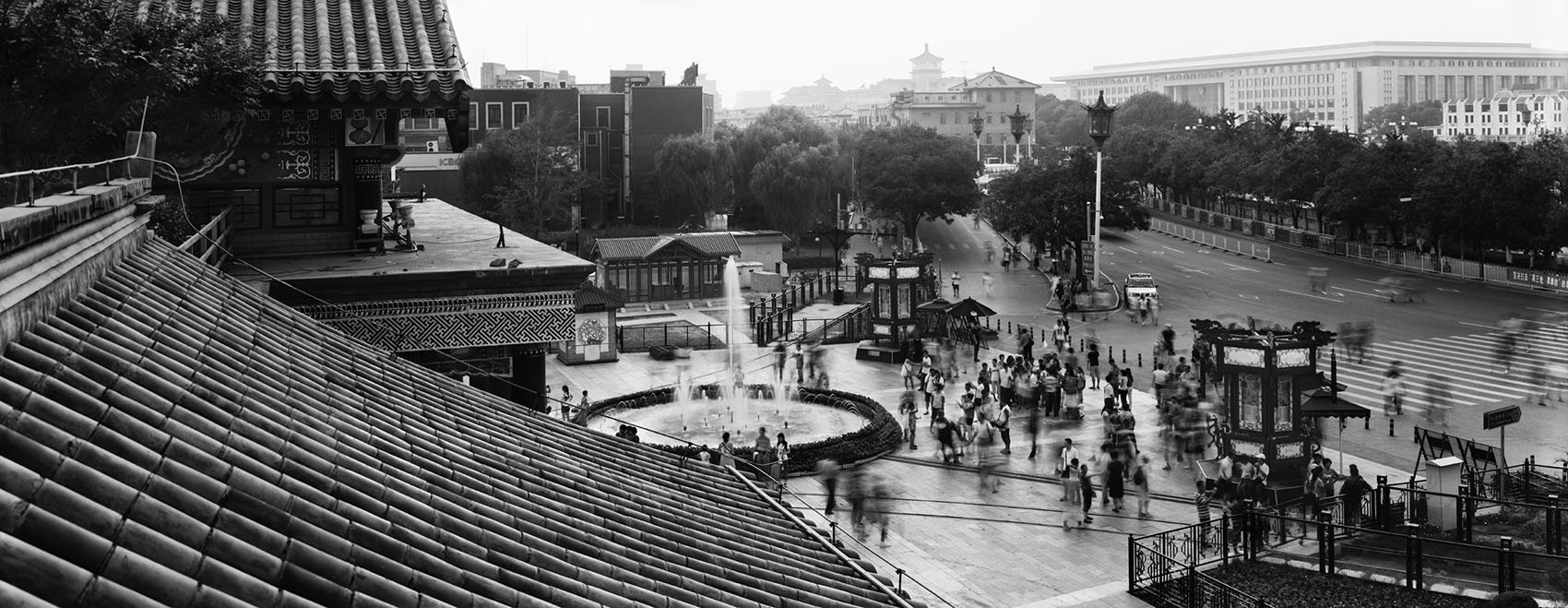|
|||||||||||
|
ARTICLESThe M Literary FestivalsTina M. Kanagaratnam
In recent years, M Literary Festivals have become a feature of the cultural scenes both of Shanghai and of Beijing. In February-March of each year, the Capital Literary Festival at Capital M, Qianmen 前门M餐厅 in Beijing (which opened in 2009) and the Shanghai International Literary Festival at M on The Bund 米氏西餐厅 (operating in the former Nissin Shipping Building on The Bund since 1999) share authors and ideas with a local and international public. The brainchild of the Australian-born restaurateur Michelle Garnaut, the festivals are curated in the tradition of the cultural and literary cosmopolitanism that is the focus of the present issue of China Heritage Quarterly. Tina Kanagaratnam of AsiaMedia in Shanghai helps design the annual events and she has kindly contributed this essay. The Beijing launch of the Australian Centre on China in the World was held at Capital M in April 2010.—The Editor It all started with few martinis … and a vision. In 2003 Australian restaurateur-in-China Michelle Garnaut got wind that the author Frank Morehouse was working on a book about the Martini and literature. Garnaut was already known for her pioneering fine dining restaurants in Hong Kong and Shanghai, and had recently opened the Glamour Bar in Shanghai. In addition to serving sublime Martinis, the Glamour Bar had just launched a cultural events series: the Martini and literature would be a perfect fit.  Fig.1 M on the Bund, rooftop view of The Bund. (Photograph: Lois Conner, 2010)
And so it was: Morehouse spoke in both Shanghai and Hong Kong—the latter at Michelle's M at the Fringe restaurant as part of the Hong Kong Literary Festival. All manner of martinis were served, everyone agreed that this was a magnificent idea, and the Shanghai International Literary Festival was born. After all, if Hong Kong could have one, why not Shanghai? Why not, indeed. The Shanghai Literary Festival has since matured into a major international cultural event: over 100 authors from around the world gather over three weekends, attracting audiences of up to 6,000 each year. In 2011, the Festival expanded to Beijing with the launch of the Capital Literary Festival at Garnaut's Beijing restaurant, Capital M at Qianmen. From the beginning, the goal was to fill a gap that existed in the English-speaking sphere for books and the discussion they generated. With the Literary Festivals, M Restaurants wanted to feed the soul as well as they did the body. They're called 'Literary' Festivals, but this is defined this with the broadest possible brush: genre is far less important than topics that will engage, entertain and charm. This allows for a delightfully eclectic programme: poetry, playwriting, business, history, food, fiction, current affairs, biography, writing workshops, China, the environment, crime, music, screenwriting, economics, science, Asia, children, art, architecture, society, travel and memoir are all regular features, and nothing is off the table. The author profile is similarly eclectic. They come from all corners, drawn by the prospect of seeing Beijing and Shanghai, the much-hyped cities of tomorrow, by the Festival's reputation as a major literary event in China and, not least, by the legendarily hospitable Ms Garnaut's reputation for wining and dining her authors. There are the big names, like Gore Vidal, Arundhati Roy, Amy Tan, John Banville, Edward P. Jones and Andre Brink; journalists like Peter Hessler, Barbara Demick, James Fallows and Evan Osnos; literary talents like David Grossman, Alan Hollinghurst, Kiran Desai and Shirley Hazzard; Chinese authors like Dai Sijie, Qiu Xiaolong and Ma Jian; China scholars and academics such as Geremie Barmé, David Der-wei Wang and Leo Ou-Fan Lee, and each year, a host of emerging writers and the lively 'Great Financial Times Debate' with journalists from that publication. In bringing a critical mass of writers and thinkers together in Shanghai and Beijing, the M Festivals mark a significant cultural development. Their impact is a long term one: visiting authors experience China first-hand, engaging with people knowledgeable about China, thus informing a more nuanced perspective in the dialogue about China.  Fig.2 Capital M, rooftop looking northwest at dusk. (Photograph: Lois Conner, 2010)
Michelle Garnaut contributes significantly to that dialogue with another literary venture, the M Literary Residency. Inspired by conversations with writers at the Festivals, she established three-month residencies in both China and India with the stated goals of 'disseminating a broader knowledge of contemporary life and writing and to foster deeper intellectual, cultural and artistic links across individuals and communities.' Giving writers three months of writing time in China allows them to capture better, more realistic portraits of the country that ultimately contribute to a better, more realistic understanding of China. Also contributing to the dialogue in their own way are the Festival venues. Held entirely at Ms Garnaut's establishments in Beijing and Shanghai, the single-venues enable a mixing and mingling of writers and audiences throughout the day, allowing continuous conversation and discussion, enhanced by the sophisticated setting and iconic city views. Each year, lively dialogue and thought-provoking conversation takes place over drinks at the bar, over lunch on the terrace or at the celebrated author dinners. At first blush, English language literary festivals in China seem counter-intuitive – but perhaps less so when the origin of those festivals is Shanghai, China's most cosmopolitan city. Thanks to its 'century of shame' (1843-1943, when Foreign Concessions ran much of the city), Shanghai was home to a generation of western-educated intellectuals, its legacy bilingual, bicultural writers like Lin Yutang and Eileen Zhang, and a literary class whose influences came equally from the west as from the east. That cosmopolitan outlook remains, and supports one of the defining elements of the M Festivals: their extraordinary internationalism. As many as twenty different countries may participate in a single year—writers from throughout Asia and the English-speaking world, and from as far afield as Colombia, Finland, Hungary, South Africa, Pakistan, Korea, and Chinese writers from throughout the diaspora. Audiences are just as international in both cities—although all speak English, those for whom English is a first language are in the minority. The cross-cultural exchange that the M Literary Festivals foster seems more valuable as the world grows more interdependent, yet more intolerant of others, of different ideas and cultures. Books cross cultures in a way little else does, and an international festival brings people from different continents and communities together in a way that has become increasingly rare. And as China's place in the world shifts, it seems a more and more logical place for this exchange. |